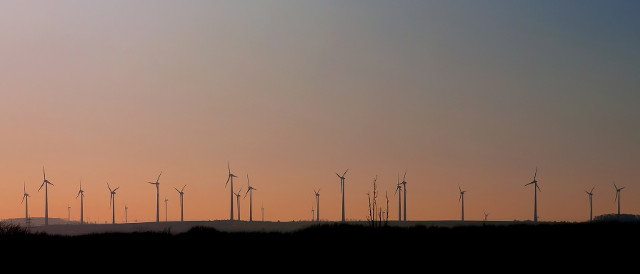German utilities have gone on a shopping spree, taking over struggling planning firms to gain sorely needed expertise and assets. The trend can be heralded as a sign that these firms are finally taking part in the energy transition – or as a potential threat to the community cooperative movement that fostered the Energiewende all along. Craig Morris says the fate of Prokon is exemplary in this respect.

Prokon investors will get a second chance – and can choose between two scenarios with very different implications.
We have already discussed the troubles at Prokon, the now bankrupt planning firm that put investments into wind farms and then lacked the liquidity when a growing number of investors wanted out. Founded in 1997, the firm has long done business in the wind sector; for instance, the founder of Prokon obtained the first permit for an offshore wind farm way back in 2001.
The company was not a proper energy cooperative, however. In the case that got it into financial trouble, it had sold shares to citizens, who did not have proper voting rights, as is common in co-ops.
Now bankrupt, Prokon is to be sold either to EnBW, one of the country’s Big Four utilities, or turned into a true cooperative. A campaign called Friends of Prokon (website in German) is behind the coop campaign. All along, these folks have argued that the company would be financially stable as soon as investors with a long-term perspective can be found to replace the ones who want out now.
EnBW has made a bid for the firm to add this expertise to its portfolio. Not everyone is happy with the offer. The amount – 550 million euros for an estimated value of 640 million, but originally worth 1.4 billion (report in German) – is not the only problem; the tone is, too. The utility’s CEO is portraying the option of a cooperative as a risky business, whereas the takeover by his firm is allegedly a safe bet.
In a position paper, the board spokesperson of German cooperative bank GLS has now taken up EnBW’s arguments one by one (PDF in German). While the utility underscores the risks of the cooperative’s 20 percent equity, the GLS points out that EnBW only had 10 percent equity at the end of 2014. Furthermore, the utility posted a loss of 450 million euros last year, and its share price is down by around 40 percent over the past four years.
EnBW arguably needs Prokon more than vice versa. While the company’s CEO says its expertise in the energy sector will help make the wind farm planning firm successful, the GLS points out that EnBW has only installed roughly 200 megawatts of wind power to date, compared to 537 MW at Prokon. In reality, the position paper continues, EnBW gets 40 percent of its electricity from nuclear. By 2022, all of that will need to be replaced, so Prokon’s assets would help fill that gap.
The current investors need to decide whether to take EnBW’s offer or hope that citizens and small businesses will come up with the 20 percent equity needed to leverage another 80 percent in borrowed capital. EnBW publicly doubts that banks will provide those loans. The GLS’s spokesperson now says his bank would be willing to lend to a Prokon cooperative, which it has actually been calling for since the beginning of 2014, and that he knows other banks would be interested in contributing as well.
The position paper says it is good that German utilities are turning to renewable energy now, “though they are only doing so because they politically have no choice.” What bothers the GLS most is that the utility is “discrediting citizen models” in public events and whole-page ads designed to scare the current investors away from the cooperative option. Financially, both options are relatively unattractive to the current investors. In the case of a co-op, they would lose 41.1 percent of their investments; and if the co-op does not come about, they will lose 47.8 percent when the firm is sold to EnBW (PDF in German). But if EnBW wins the bid, money is paid out immediately. If the coop idea wins, the investors get shares, not cash – they could earn more or lose more. On July 2, the creditors are to vote on the matter.
Craig Morris (@PPchef) is the lead author of German Energy Transition. He directs Petite Planète and writes every workday for Renewables International.